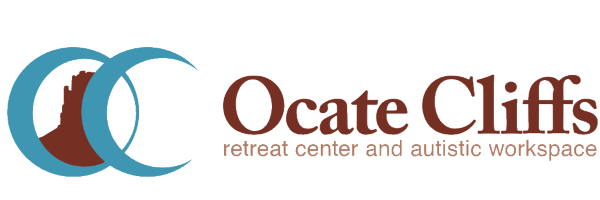An “autistic space” is an environment created by autistic people that accommodates our unique challenges, connects us to each other, and empowers us to be fully participatory, as explained eloquently in this article. Ocate Cliffs takes this concept of autistic space to the next level: an ongoing work environment where people with Asperger’s, autism, and related disabilities are fully participatory in the organization. We call this an autistic workspace.
There are lots of programs and therapies targeted for this population, but they mainly stem from the notion of us being broken – they focus on deficits. But people do not achieve their potential when they are constantly treated as broken. Despite billions of dollars being spent in the last decade on autism-related research and treatments, unemployment among autistics remains very high and chronic anxiety and depression are exceedingly common. Most decision making about autism and Asperger’s completely excludes the input of actual autistic people, and as a result it usually drives at cross purposes to what we really need.
Our approach is to allow people to contribute extensively and authentically, to follow their passions and be honored as completely whole people. Autistic people will not only get a work placement, but also co-operatively run the organization. If anyone in the autism services world would stop to ask us what we think is needed, the answer would be this – full inclusion.
This project will also interface autistic people with others in new ways. Typically in programs for our putative benefit, we’re expected to be “good” and stay in our places at the bottom of the hierarchy, and maybe memorize social scripts. But when we have real responsibilities in some work domain, then we have the chance to develop real social skills in power-balanced relationships. The guests will have the unusual task of communicating with some staff who don’t speak, and we think this is a good thing. Exposure to the wide variety in the human condition will be one of the benefits of being a guest at Ocate Cliffs. Also, since many of us have highly developed interests and skills but cannot normally find a way to put them to any meaningful use, projects like this make that connection and are a chance to showcase those skills. For example, someone who is a singer might sing to the guests as they hand them linens. We won’t try to make autism invisible by acting all the same – we’ll encourage it to blossom by being all different, as that is the nature of autism.
The research results of a project like this could have a wider effect than the summer employment we provide for a dozen or so people, because that can influence a much larger number of people all over the world. We’ll be using video and written logs of our activities, and asking people for in-depth evaluations of experiences – what worked and what didn’t. Because this type of project is so rare, our results could be highly informative and helpful to the design of disability programs generally.
